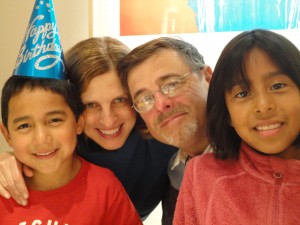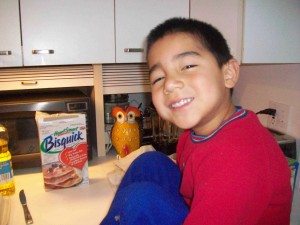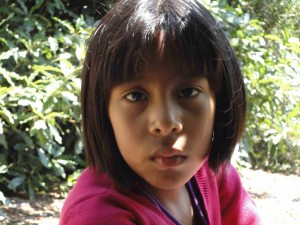This month’s February issue of Good Housekeeping includes an article by Melissa Fay Greene that left me almost gasping. Never before have I read an article in a mainstream publication that addresses so honestly the challenges faced by some adoptive families. Greene wrote “Love Medicine” in response to the case of the Russian boy who was “sent back” to Moscow by his overwhelmed adoptive mother, Torry Hansen. In the article, Greene profiles two sets of adoptive parents whose children exhibited similar attachment issues and violence. But the adoptive parents in Greene’s article sought help and fought through to better outcomes. Their families remain intact.
Greene begins “Love Medicine” by explaining:
In the universal condemnation of [adoptive mother Torry] Hansen, one population remained mostly quiet. Adoptive and foster parents of neglected, abused, or traumatized children …
Greene goes on to say:
Adoption literature brims with upbeat slogans… Roughly two million adopted children living in American households prove there’s truth in those phrases. But “A Match Made in Heaven” fails to capture the commitment and resilience demanded of adoptive parents, and the courage traumatized children need to attach to new caregivers.
Here I will add that Guatemala was often held up as the gold standard of foster care, but those of us who adopted from Guatemala know that foster and orphanage situations varied widely. Greene writes:
For infants, there really are only two continents: the land of well-being, and the land of lack.
***
[W]hat if, on top of physical or neurological damage, love, kindess, and delight don’t envelop the baby? If she is fed from a bottle that is propped against the bars of a crib, or lies in soiled diapers for long hours; if no one burbles baby talk to her and no one rejoices when she rolls over and no one comes when she cries, the baby stops reaching out. As the infant withdraws and shuts down, her brain fails to develop key pathways, the elemental approaches to love. Love is a duet, not a solo.
Greene outlines ways in which the two adoptive families in “Love Medicine” coped. “Theraplay’ saved one family whose children from Ethiopia struggled. The other family, with a daughter from China, reached out to fellow adoptive parents and their own parenting abilities (the father is a mental health clinician). As the article stresses, there is hope for families who are struggling, and for parents who wonder if they can get through another day. Imagine what life is like for your child: new faces, new food, new smells, new clothes, new language. Even for children who haven’t suffered neglect, everything familiar has disappeared. As the families in Greene’s profile demonstrate, the key is love and commitment. Get help. Don’t give up.
Greene concludes:
[E]very year, a fraction of adoptive parents will be unnerved by a new child’s issues. Finding a way to love a traumatized child, and helping that child learn to love, takes years, say battle-weary parents. Those parents who survive and thrive often say that it was the hardest and most satisfying work of their lifetimes, and that it unlocked the door to their greatest treasures: their own beloved children.
In my opinion, this article should be required reading for every adoptive parent and every person who is considering adoption. But you’ll have to buy it on the newsstand; I couldn’t find a link on the Good Housekeeping website. Sorry~!



 ShareThis
ShareThis






